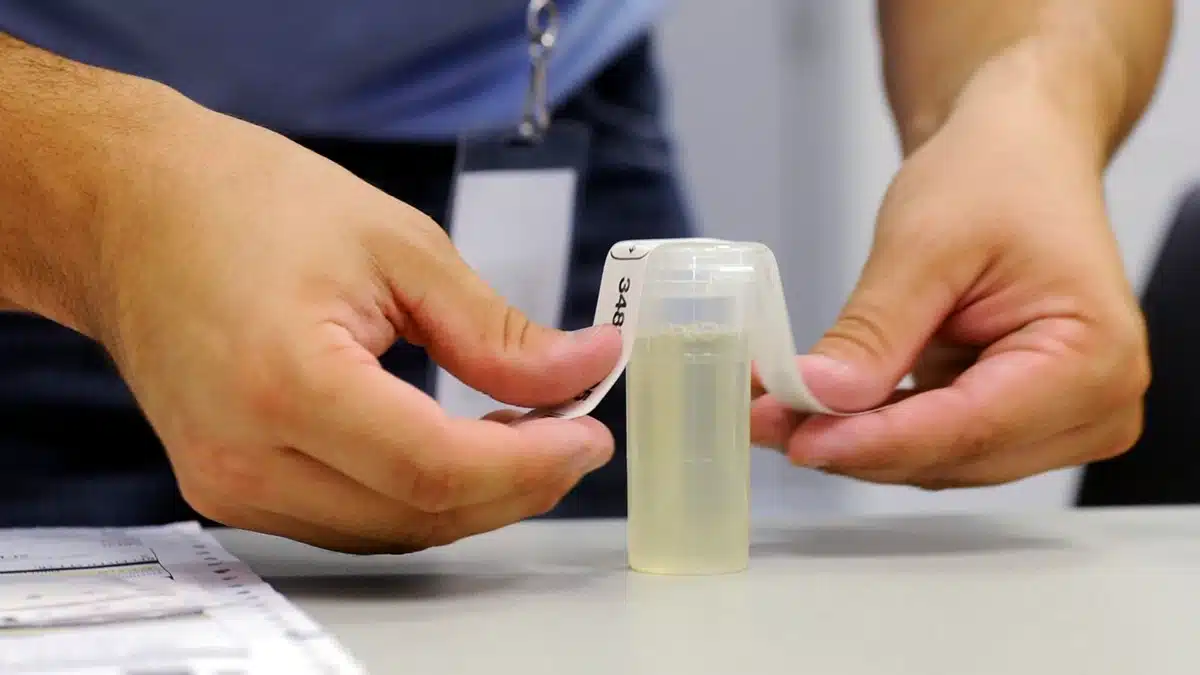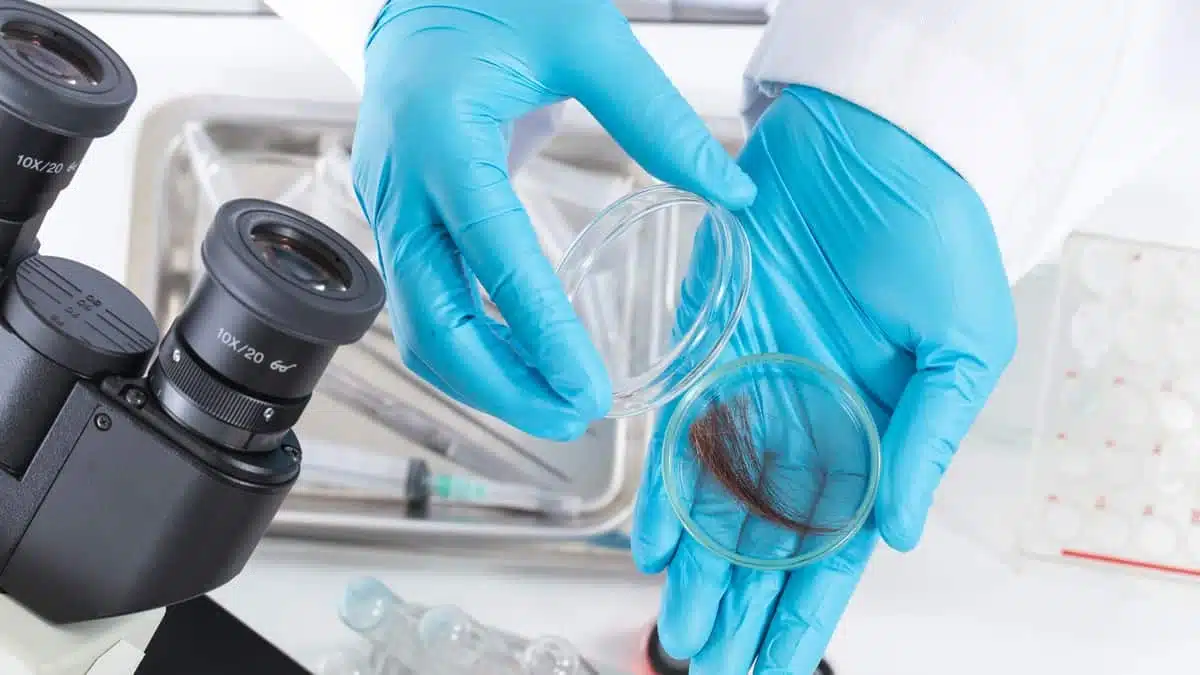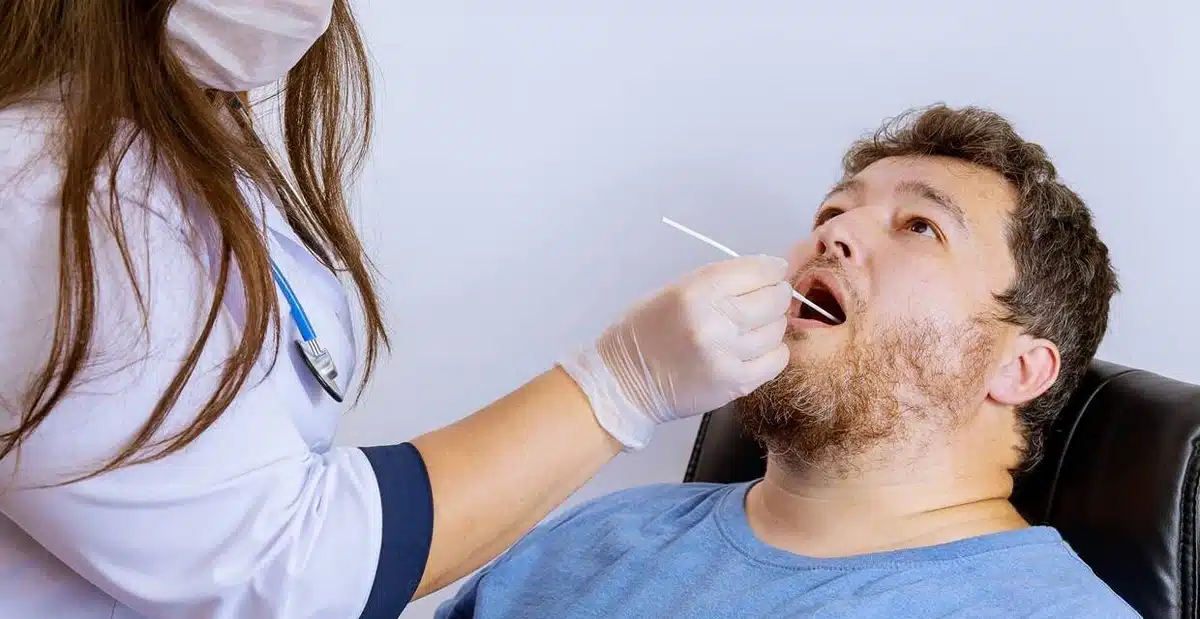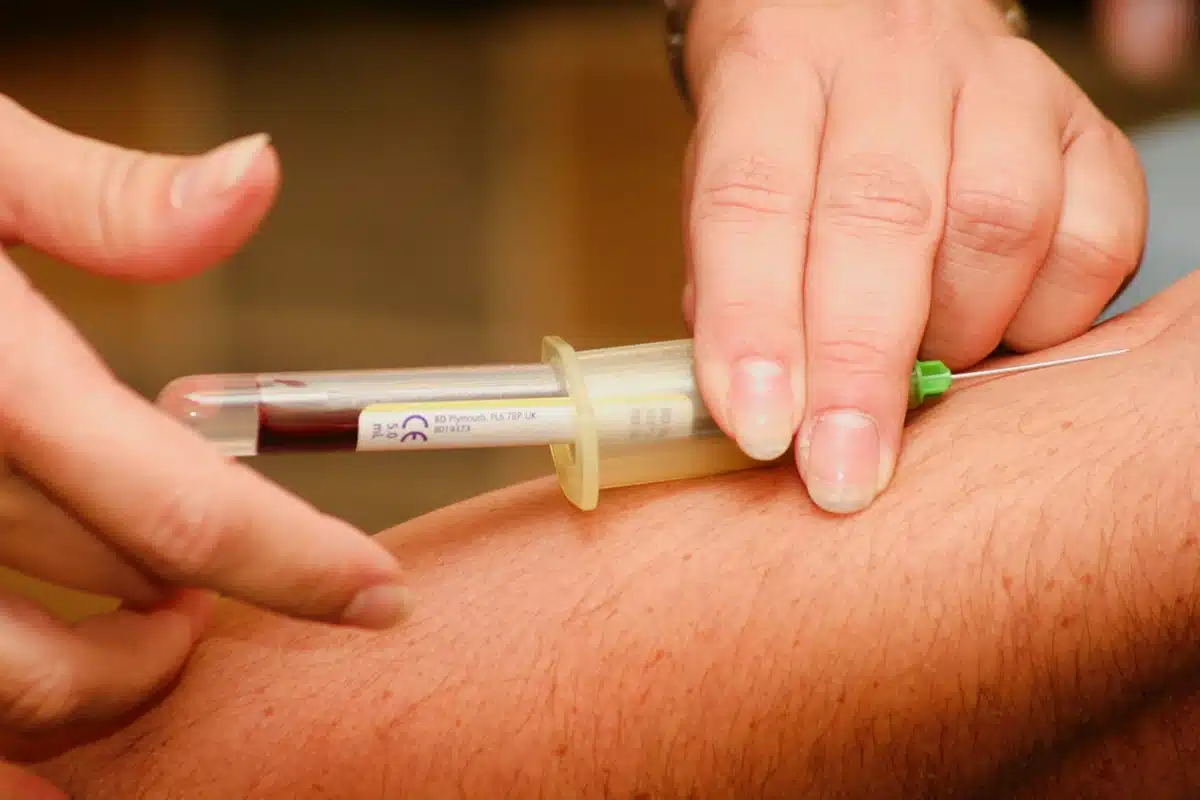Embrace the journey to becoming a Certified Nursing Assistant (CNA), with an unexpected stepping-stone – the CNA drug test. Unravel the intricate role it plays in demonstrating your dedication to the healthcare industry.
CNA drug tests are a crucial step for prospective CNAs, ensuring patient safety and professional integrity. They scrutinize for illicit substances and provide the foundation for trust in the healthcare environment.
Intrigued? Buckle up as we delve into the nuances of drug testing – from understanding its necessity to learning about the drugs that are typically screened for.
Quick Navigation
- What Is A CNA Drug Test?
- Why Are CNAs Required to Take Drug Tests
- What Drugs Are Tested For On A CNA Drug Test
- Types of CNA Drug Test
- How Are CNA Drug Tests Administered?
- When Are CNA Drug Testing Required?
- Consequences of Positive Drug Test for A CNA
- The Rights of CNAs During the Drug Testing Process
- The Role of Confidentiality in Drug Testing
- Rehabilitation and Return to Work
- How Can You Prepare for A CNA Drug Test
- Navigating the Future: Understanding and Preparing for CNA Drug Testing
What Is A CNA Drug Test?

A CNA drug test is a screening process that checks for the presence of any illicit substances in the system of a Certified Nursing Assistant (CNA), ensuring a safe and reliable healthcare environment.
The CNA drug testing process typically involves collecting a urine sample from the CNA, which is then sent to a laboratory for analysis.
This test is usually conducted before employment or at random intervals during employment.
But, here’s the thing:
Although urine drug test is the most common test, some facilities have their own preferences and requirements. We’ll talk more about them later.
Why Are CNAs Required to Take Drug Tests
The reasons for CNA drug testing are multi-faceted. However, its main aim, which is the same as drug testing for police officers, is to ensure safety.
By conducting drug tests, employers can identify CNAs who may be under the influence of drugs or alcohol while on duty, which could impair their ability to provide proper care.
CNA drug testing has proven to be effective in detecting substance abuse among healthcare professionals.
It acts as a deterrent, discouraging CNAs from using illicit substances due to the fear of potential consequences.
This helps maintain a safe and secure environment for patients, where they can receive the best possible care.
However, controversy surrounds CNA drug testing due to concerns about privacy invasion and potential discrimination.
Some argue that it is not fair to judge an individual’s competency solely based on their off-duty behavior. Critics also question the accuracy and reliability of certain drug tests.
Despite these controversies, CNA drug testing has a positive impact on patient care. It ensures that CNAs are alert, focused, and capable of providing optimal care without impairment.
Patients deserve peace of mind knowing that their caregivers are free from substance abuse.
While alternatives to CNA drug testing exist, such as education programs and support systems for addiction recovery, regular screenings remain an essential tool in maintaining patient safety and quality care standards.
What Drugs Are Tested For On A CNA Drug Test
As a certified nursing assistant, it’s crucial to understand the CNA drug test requirements and be prepared accordingly.
The most common drugs tested for on a CNA drug test include marijuana, cocaine, amphetamines, opiates, and benzodiazepines.
These substances can impair judgment, coordination, and overall performance, which could compromise patient care.
It’s important to note that these tests don’t screen for prescription medications unless they’ve been abused or used without a valid prescription.
Types of CNA Drug Test
As mentioned earlier, there are several types of drug tests that may be conducted. Below is an overview of each type:
Urine Drug Test

A urine drug test provides a snapshot of your recent substance use. It’s one of the most common types of drug tests used for CNA screenings.
Urine tests are popular because they’re relatively inexpensive, easy to administer, and provide accurate results.
However, it’s important to note that false positives can occur due to various factors such as certain medications or foods.
The accuracy of urine drug tests depends on the type of drugs being tested for and how long ago they were consumed.
Different drugs stay in your urine for different lengths of time, ranging from a few hours to several days or even weeks.
If you’re concerned about passing a urine drug test, there are certain methods that people claim can help you pass, such as drinking lots of water or using detox products.
However, it’s always best to consult with a healthcare professional before attempting any methods to ensure their safety and effectiveness.
Remember, honesty is crucial when it comes to drug testing as it ensures the integrity and trustworthiness within the healthcare field.
Hair Follicle Drug Test

If you’re concerned about passing a drug test, it’s important to be aware of all the different methods used for testing.
While urine drug tests are commonly used, there is another type of test called a hair follicle drug test that you should know about.
Hair follicle testing involves analyzing a small sample of hair to detect the presence of drugs in your system.
One advantage of this type of test is its longer detection period compared to urine tests, as drugs can be detected in hair for up to 90 days. Additionally, hair follicle tests are considered highly accurate and difficult to cheat.
However, if you’re worried about the results or prefer an alternative method, there are other options available such as saliva or blood tests.
It’s also important to note that while hair follicle testing is legal in many situations, some states have restrictions on its use for employment purposes.
Saliva Drug Test

One advantage of the saliva test is that it allows for quick and non-invasive detection of drug use.
The detection window for drugs in saliva is generally shorter compared to other drug testing methods, such as urine or hair follicle tests.
This means that the saliva test can detect recent drug use within a few hours to a couple of days. The accuracy of saliva drug tests is also quite high, with results comparable to urine tests.
Pros of saliva drug testing include its convenience and ease of administration. It doesn’t require specialized facilities or trained professionals, making it more accessible for on-site or random testing.
However, there are some cons to consider as well. The detection window may be too short for detecting chronic drug use, and certain drugs may not be easily detected in saliva.
Alternative drug testing methods like urine or hair follicle tests have their own advantages and disadvantages, so it’s important to choose the most appropriate method based on specific needs and circumstances.
Blood Test

A blood test is one of the methods used for drug detection and screening. It involves analyzing a sample of your blood to determine the presence of drugs in your system.
This type of test is often more accurate than other methods as it can detect even small amounts of drugs.
Blood tests are commonly used in medical settings, such as hospitals and clinics, to monitor patients’ health or identify any substance abuse issues.
The results from a blood analysis can provide important information that can help healthcare professionals make informed decisions about your treatment and care plan.
How Are CNA Drug Tests Administered?
CNA drug tests are typically administered by collecting a urine sample from the individual being tested.
The process for conducting a CNA drug test follows specific guidelines and protocols to ensure accuracy and fairness.
Before taking the test, it’s important to understand the requirements and procedures involved.
To begin, you’ll be asked to provide a urine sample in a designated area. The collection process is usually supervised to prevent tampering or cheating.
You’ll be given instructions on how to properly collect the sample, including washing your hands beforehand and avoiding any contamination.
Once you’ve provided the urine sample, it’ll be sent to a laboratory for testing. The lab technicians will analyze the sample for various substances that may indicate drug use.
This includes screening for commonly abused drugs such as marijuana, cocaine, opioids, amphetamines, and benzodiazepines.
It’s essential to note that CNA drug tests are conducted with utmost professionalism and confidentiality.
The results of these tests are used to determine an individual’s suitability for employment in the healthcare field.
If you have any concerns or questions about the process, it’s recommended to consult with your employer or human resources department for further guidance.
Overall, understanding the CNA drug test process can help ensure compliance and maintain integrity within the healthcare industry.
By following the established guidelines and protocols, both employers and employees can work together towards creating a safe and drug-free workplace environment.
When Are CNA Drug Testing Required?
When becoming a Certified Nursing Assistant (CNA), there are certain situations when drug testing is required.

Pre-Employment Drug Testing
Before diving into the world of healthcare, you must navigate the treacherous waters of pre-employment drug testing.
This crucial step in the pre-employment process is designed to ensure that all potential employees meet certain standards and are fit to work in a healthcare setting.
Drug testing policies vary depending on the employer and legal requirements, but they typically involve screening for a variety of substances through urine or blood samples.
It is important for applicants to be aware of their rights during this process, such as the right to privacy and confidentiality.
Employers must also follow proper drug testing procedures to maintain fairness and accuracy.
By adhering to these guidelines, both employers and employees can create a safe and secure environment in which everyone feels a sense of belonging.
Random Drug Testing
Navigating the world of healthcare requires you to be prepared for the possibility of random drug testing, a policy that ensures the safety and integrity of both employees and patients.
Random testing is conducted without prior notice, meaning that any employee could be selected at any time.
Random drug testing involves randomly selecting CNAs for drug tests at unscheduled times throughout the year.
The goal is to provide a deterrent against drug use, as employees will not know when they might be selected for testing.
The selection process is typically computer-generated to ensure fairness and unpredictability.
If a CNA is chosen for a random drug test, they will be notified and expected to provide a specimen, usually urine, on the spot.
Random drug testing is legal in most jurisdictions, although laws may vary.
Employers should have a clear policy regarding drug testing, including the procedure for random tests, consequences of positive results, and employees’ rights during the process.
Reasonable Suspicion Drug Testing
If you thought random drug testing was the only way your employer could catch you off guard, think again. Enter reasonable suspicion drug testing.
This type of drug test is conducted when there is a specific reason to believe that an employee may be under the influence of drugs or alcohol while on duty.
The legal requirements for conducting a reasonable suspicion drug test vary from state to state, but typically involve observing behaviors such as erratic behavior, slurred speech, or the smell of alcohol or drugs on an employee.
It’s important to note that if you refuse to take a reasonable suspicion drug test, it can have serious consequences, such as termination or suspension.
However, it’s also important to know your rights as an employee during this process and ensure that all drug testing procedures are followed according to the law.
Consequences of Positive Drug Test for A CNA

If you test positive for drugs as a CNA, you’ll face immediate consequences, such as suspension or termination from your job.
This can have a significant impact on your career and future employment opportunities in the healthcare field.
In addition to the immediate consequences, there may also be long-term consequences such as damage to your professional reputation and limited job prospects in the future.
Immediate Consequences
In the swirling sea of consequences, a failed drug test can unleash a tidal wave of immediate repercussions.
The first and most obvious is the legal implications. Depending on your state’s regulations, you could face fines, probation, or even criminal charges.
Your job prospects may also take a hit, as many healthcare facilities require employees to pass regular drug tests.
A positive result can severely limit your options in the field and make it difficult to find employment elsewhere.
Additionally, your professional reputation may be tarnished as word spreads about your failed drug test. This can lead to distrust from colleagues and potential employers alike.
Finally, disciplinary actions from your employer are almost certain to follow, which could include suspension or termination of employment.
So it’s crucial to understand the immediate consequences that come with failing a drug test as a CNA, and take steps to prevent them from happening in the first place.
Long-Term Consequences
The ramifications of failing a drug test extend far beyond the immediate consequences, impacting your future prospects and reputation in the healthcare industry.
Failing a drug test can have serious long-term effects on your career.
Many healthcare facilities have strict policies regarding substance abuse, and a failed drug test can result in termination or difficulty finding future employment.
Additionally, there may be legal implications depending on the circumstances, such as losing professional licenses or facing criminal charges.
It’s crucial to seek support resources if you find yourself struggling with substance abuse, as there are organizations and programs available to help individuals overcome addiction.
Employers also have responsibilities in providing a safe work environment and may offer assistance programs for employees dealing with substance abuse issues.
Understanding the potential long-term consequences of failing a drug test is essential for maintaining a successful career in the healthcare industry.
The Rights of CNAs During the Drug Testing Process

During the drug testing process, CNAs have the right to be treated with respect and fairness, just like a compass guiding them through their career.
It is important for employers to understand and uphold these rights, as they have legal implications that must be taken into consideration.
Privacy concerns are also a major factor in the drug testing process, and CNAs should feel confident that their personal information will be handled with care and confidentiality.
Discrimination issues can arise during drug testing, as certain individuals may be unfairly targeted or treated differently based on factors such as race or gender.
Employers must ensure that all employees are treated equally throughout the entire process.
Employee assistance programs (EAPs) can provide support for CNAs who may be struggling with substance abuse or addiction.
These programs offer resources such as counseling and treatment options, allowing CNAs to seek help without fear of punitive actions from their employer.
Overall, it is crucial for both employers and CNAs to understand the rights involved in the drug testing process.
By upholding these rights and providing necessary support systems, employers can create an environment where CNAs feel safe and valued in their profession.
The Role of Confidentiality in Drug Testing
Confidentiality plays a crucial role in drug testing for CNAs, as it upholds important ethical considerations and protects individuals’ privacy rights.
The importance of confidentiality in drug testing cannot be overstated.
It ensures that your sensitive information, including test results and medical history, is kept private and only shared with authorized personnel on a need-to-know basis.
This not only safeguards your personal reputation but also maintains trust between you and your employer.
From an ethical standpoint, maintaining confidentiality during the drug testing process demonstrates respect for individuals’ autonomy and dignity.
It acknowledges that one’s personal health information should be treated with utmost care.
Moreover, breaching confidentiality can have significant legal implications, exposing both the organization conducting the test and the individual responsible to potential lawsuits.
Consequences of breaching confidentiality in drug testing can range from damaged professional relationships to legal actions.
Employers who fail to protect employees’ privacy may face reputational damage, loss of trust from their workforce, or even financial penalties under applicable laws.
Rehabilitation and Return to Work

Once you successfully complete your rehabilitation program, you’ll be able to return to work with renewed confidence and a fresh start.
Rehabilitation programs play a crucial role in helping individuals overcome drug addiction and regain control of their lives.
These programs provide comprehensive support systems that address both the physical and psychological aspects of addiction.
The return to work process after completing rehabilitation involves careful planning and coordination between the individual, their treatment team, and their employer.
It is important to ensure a smooth transition back into the workplace while maintaining confidentiality and respecting the individual’s privacy.
Relapse prevention strategies are an integral part of the rehabilitation program. These strategies help individuals identify triggers and develop coping mechanisms to avoid relapse in high-risk situations.
Learning how to manage stress, build healthy relationships, and make positive choices are key components in preventing relapse.
Workplace reintegration focuses on creating a supportive environment that encourages open communication, understanding, and acceptance among coworkers.
Employers can play a vital role by providing education about addiction, offering flexible schedules or accommodations when necessary, and promoting employee wellness programs.
How Can You Prepare for A CNA Drug Test
To ensure you’re fully prepared for the upcoming assessment, it’s important to familiarize yourself with the necessary steps and requirements.

When it comes to a CNA drug test, there are several ways you can prepare yourself.
First and foremost, make sure you understand the importance of preparation. This test is a crucial part of the hiring process, as employers want to ensure that their employees are drug-free.
One common mistake to avoid is not knowing what substances are included in the test. Familiarize yourself with the drugs that’ll be screened for so that you can take any necessary precautions beforehand.
Additionally, it’s important to stay calm during the test. Being nervous can lead to mistakes or inaccurate results.
Understanding the process is also key. Research what methods are used for testing and how long certain substances stay in your system.
This knowledge will help you better plan for the test and give you peace of mind.
Navigating the Future: Understanding and Preparing for CNA Drug Testing
Preparing for a CNA drug test doesn’t have to be daunting.
By understanding the purpose and process of drug testing, knowing your rights, and maintaining confidentiality, you can confidently navigate this requirement.
Remember, rehabilitation is possible if needed, ensuring a smooth return to work.

